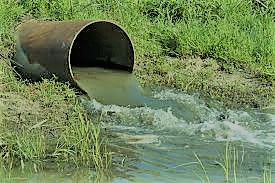Leh delegation visits IIT Gandhinagar to understand wastewater management in extreme cold climate
The IIT team headed by Sudhir Kumar Arora, Professor, Civil engineering, made a presentation on Management of Domestic Waste water in Diverse Climatic Conditions Search for Sustainable Solutions that highlighted various technical processes, construction, operation and maintenance aspects involved in treating different kinds of wastewater including natural, biological and physico-chemical.

- Country:
- India
A 13-member delegation from Leh-Ladakh and Kargil visited the Indian Institute of Technology (IIT), Gandhinagar to understand wastewater management at the institute, learn about the process, and examine various eco-friendly and sustainable technologies which can be adopted for the extreme cold climate of their region, according to officials. The delegates discussed the issues of infrastructure development at high altitudes, specifically water supply and sanitation during the visit on Wednesday. The IIT team headed by Sudhir Kumar Arora, Professor, Civil engineering, made a presentation on ''Management of Domestic Waste water in Diverse Climatic Conditions: Search for Sustainable Solutions'' that highlighted various technical processes, construction, operation and maintenance aspects involved in treating different kinds of wastewater including natural, biological and physico-chemical. The team also explained the sustainable technology used in the sewage treatment plant at IITGN.
''Under this system, the waste water is piped to the Sewage Treatment Plant (STP), where it is treated by feeding the collected waste to a bacterial mass that converts the decaying matter into a stabilised basic mixture of water, carbon dioxide and mineral-rich residue. This process is completed by passing the effluent through a settlement tank, an anaerobic baffled reactor including anaerobic filters, and through the roots of Canna Indica in a process known as root zone treatment. The resulting treated water is primarily used for irrigation purposes,'' a senior official said. ''In addition to the direct benefit of saving the operational cost of the sewage treatment system, lower power and chemical consumption in this technology results in a lesser carbon footprint. Hence, it can also be termed as a 'Green STP Technology'. The technology reduces the demand for fresh water supply and the load on the city’s sewage treatment system,'' the official added. The delegation included administrative officers and councillors of the Ladakh Autonomous Hill Development Council (LAHDC), elected representatives of Leh and Kargil towns, chairperson of the Block Development Council, executive officers and ward members of Leh and Kargil Municipal Committees, engineers of their Public Health Engineering Department, and urban planner of Ladakh Ecological Development Group (LEDeG).
(This story has not been edited by Devdiscourse staff and is auto-generated from a syndicated feed.)
- READ MORE ON:
- Indian Institute
- Leh-Ladakh
- Ladakh Autonomous Hill Development Council
- Kargil Municipal Committees
- Arora
- the institute
- Waste
- Block Development Council
- LEDeG
- Canna Indica
- Health Engineering Department
- Sudhir Kumar
- Diverse Climatic Conditions: Search for Sustainable
- Gandhinagar
- Kargil
- Ladakh Ecological Development Group










